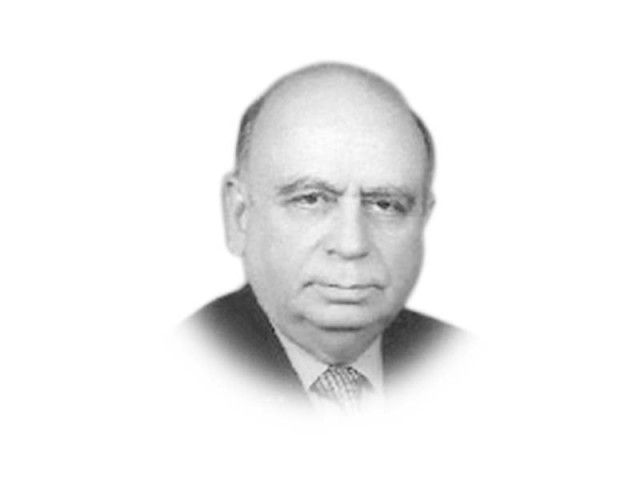Transparency in custodial investigations
What should be addressed is the transparency of the process regulating custodial investigations

The writer is a former inspector general of
police, Sindh
A death in police custody is something that cannot be completely eliminated in the same way as death cannot be banished from our lives. What should be addressed is the transparency of the process regulating custodial investigations. In a number of cases, custodial deaths happen because the individual under investigation is placed under a great deal of stress due to the fearful environment existing in police custody. Different methods are employed by the investigators to pressure, confront and scare the accused persons to reveal the truth as to the allegations levelled at them. Admittedly, in many cases, the accused persons may be severely tortured. However, in a larger number of cases, deaths can occur due to heightened anxiety, guilt and fear of being discovered, which can trigger underlying, and in some cases, undetected medical conditions to devastating and fatal effect.
In order to address the problems arising due to such contestable custodial deaths, legal provisions within the Criminal Procedural Law allow the area magistrate to conduct an inquiry to determine the cause of death. In case of torture being proven, the magistrate can initiate legal action immediately. In all unnatural deaths, an inquest report is based on the post-mortem report conducted by an authorised doctor or board of doctors.
With time, this law has lost its efficacy in determining the actual cause of the death. As the relationship between the police and the magistracy degenerated into collusion, the magistracy that was the part of the executive began to be used for covering up facts rather than for ensuring the transparency of findings. The Police Order 2002 specifically addressed this issue of public interest and made a detailed provision that laid down the course of action in case of death, grievous hurt and complaint of rape in custody. In such cases, it was within the remit of the government to automatically request the high court to appoint a session judge to conduct a judicial inquiry in order to determine the facts of the case for possible criminal or departmental action.
Over time, the civilian police in the country has begun to be replaced by the civil armed forces because police personnel have lost their capacity to deal with law enforcement and maintenance of order in society. Due to political interference in police work, encompassing case investigations, arrests, bails, and even internal and administrative matters of appointment, training, promotion and postings, the police supervisory structure has been paralysed. This has completely fragmented the institutional capacity of police to perform its duties. Instead of addressing this malaise, the political government has resorted to inducting the civil armed forces for maintenance of order and crime control. The forces are ideally suited to dealing with a serious breakdown of order or to handle a hard target within a given timeframe. However, they should not be expected to perform regular police duties as they lack a system of internal management based on a mechanism that monitors and records all actions and movement of each policeman. Such a process, which is integrated into the institutional capacity of the police force, ensures effective control for affixing the responsibility in case of a mishap.
The deployment of the Rangers in Karachi has seen some critical reports in the media regarding the purported highhandedness of the Rangers. After the death of the MQM activist in the custody of the Rangers, those with vested interests have attempted to malign the paramilitary force, despite its impressive work at restoring peace to the city. While the military has rightly ordered an inquiry because of the government inaction, even this inquiry, which has been welcomed by the affected party, is being criticised. It cannot be stressed enough that the existing law should be allowed to run its course through an inquest by the magistrate to determine the cause of death and to furnish evidence for further legal action, should a need to hold the Rangers accountable be established in this instance.
The government must deal with law enforcement on priority, and instead of playing politics by deploying the civil armed forces to deal with unsavoury situations, it should assume full responsibility and desist from political interference in policing. Continued deployment of the military for policing functions will not only thin out its resources, it will also unnecessarily embroil it in needless political controversies. The solution consists of ensuring that the rule of law prevails in the operation of a fully accountable and neutral police force, which is insulated from all extraneous interference. As an immediate measure, all police chiefs should have legally ensured tenures with total operational autonomy. This would prevent the government from playing political games by embroiling the military in policing, which is ultimately the function of a civilian force.
Published in The Express Tribune, May 19th, 2016.
Like Opinion & Editorial on Facebook, follow @ETOpEd on Twitter to receive all updates on all our daily pieces.














COMMENTS
Comments are moderated and generally will be posted if they are on-topic and not abusive.
For more information, please see our Comments FAQ